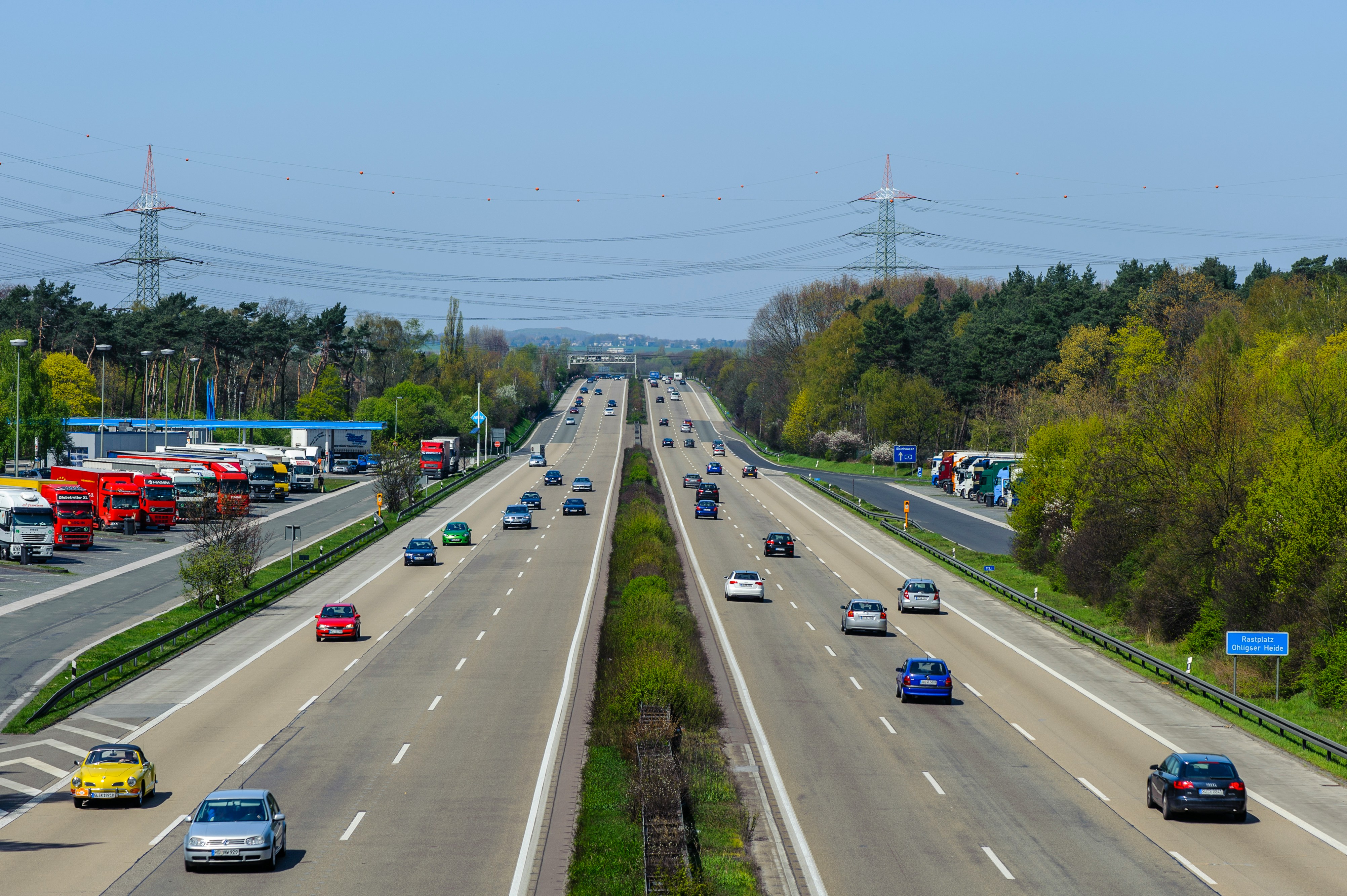
There's nothing quite like a summer international tournament, and thousands of fans from England and Scotland alike are expected to make the trip over to Germany for this year's festivities.
With Euro 2024 almost upon us, though, there's a few things we think you should be aware of to avoid getting stung while on your travels, especially if you're going to be driving while abroad.
Motoring expert Ali Ingram-Seal at Saga has shared some key road laws for road trippers going abroad to follow England and Scotland - including different drink drive limits - and reminds drivers to check their car’s emissions rating to avoid a nasty €100 fine.
What do I need to take with me to drive in Germany?
Ingram-Seal suggests anyone taking their own car to Germany should make sure they have the following with them:
- Passport
- Valid driver’s license
- Vehicle logbook (V5C form)
- Car insurance certificate
- EU breakdown policy information, if relevant
- Up to date vehicle tax and MOT
She adds: “Most major German cities require a green emissions sticker that confirms your car’s compliant with their low-emission zones. This is usually determined by when your car was registered. Most cities only allow green emission vehicles, unless anyone in the vehicle has a blue EU parking card for people with disabilities.
“If you don’t have a sticker, you’ll be facing a €100 fine anytime you enter a city with an environmental zone like Dusseldorf, a city fans could drive through to reach the games.”
Find out what Euro rating your vehicle is with this tool. If needed, you can purchase your emission sticker online from sites like this.
You should also have a 'UK' symbol on your number plate or as a sticker (this changed from GB in 2021).
Ingram-Seal adds: “If your car currently has a ‘GB’ identifier on the registration plate, you must also put a ‘UK’ sticker on the rear as ‘GB’ is no longer valid abroad. Without the correct identifier, drivers could face a fine of up to €140 or be refused entry abroad.”
You should also check what mandatory items you need to have in your car with you in the countries you will be driving in. For example, in France you are required to have reflective jackets, a warning triangle, and (where relevant) headlamp beam deflectors.
Finally: “Before your trip, check your car insurance policy to see what you’re covered for when driving abroad and for how long. By law, all drivers in the EU need third-party insurance, which fortunately all UK policies include as standard. Check that you can access your insurance documents online or on your phone in case you need them while abroad.
"It may be worth considering EU breakdown cover as an add-on for extra peace of mind.”
Speaking from personal experience having broken down on the motorway in Belgium earlier this year thanks to a worn-out alternator, we can confirm this is good advice - but be prepared for hefty repair fees in the unlikely event it happens to you, as chances are they will tow you to a dealership. That's a grand we won't see again.
Driving laws and speed limits in Germany

Well, first of all, remember that the UK, Ireland, Cyprus and Malta are they only European countries that drive on the left: the rest of the mainland continent drive on the right.
That means that the fast and slow lanes are also reversed to what Brits are used to, and that roundabouts go the other way (anti-clockwise, rather than clockwise). Personally, we just think about what we'd do if we were using GTA as a boring safe driving simulator.
More helpfully, Ingram-Seal says: “Using speed camera tracking software is prohibited in France, Belgium and Germany which can lead to a €75 fine if caught, so make sure that you turn this feature off on any navigation system.” Ali warned.
“Drink driving rules are also slightly different as the limit in France, Belgium and Germany is 0.5mg/100ml, slightly less than the UK’s limit of 0.8mg/100ml – but the same as Scotland. This means that drinking just one pint or glass of wine could put you over the limit. It may be best to avoid drinking at all if you are planning on driving within the next 24 hours.”
She adds that caution should be exercised when driving on the German Autobahn, saying: “Germany is notorious for its unrestricted Autobahns with no speed limits, however only an eighth of the motorway system is completely unrestricted. These sections are identifiable by a white sign with four black lines running diagonally across.
“Half of all highways in Germany have a recommended speed of 130km/h (80mph) while the rest of the network has variable speed limits in place. Any area with an advisory limit will be signposted by a square blue sign with the limit in white writing, while limited speed zones are indicated by a circular sign with a red outer ring.”
Is it cheaper to drive to Euro 2024 than fly?

Saga say yes, particularly if you're looking for direct flights from Scotland, and they're increasingly correct, especially with flight prices rising the closer you get to the tournament.
We're still a little bit sceptical about the numbers Saga have provided, though, which presume that Scotland fans are willing to drive 20 hours from Edinburgh to Munich non-stop without an overnight stay - and don't factor in the costs of getting back home, either. Nor have they included the costs of all those extras you'd need to buy before your trip, like the high-vis jackets and insurance, etc.
So we crunched our own numbers, and... look, basically, there's no simple answers and you're going to have to cost it up yourselves depending on your own individual circumstances and how much of a premium you put on convenience and environmental impact.
To give you an idea, though: at time of writing (lunchtime on Wednesday 29th May), the shortest return flight from Edinburgh to Munich that would get you there in time for the opening game on the Friday and then fly back as soon as possible afterwards would set you back over £1,400 per head on Easyjet and still necessitate a three-night stay in Germany However, if you were able to get to Heathrow or Manchester you could do it for a £300-£325 return flight and only have to stay one night.
Going from London to Gelsenkirchen (Heathrow to Dusseldorf) for England's opener against Serbia on the Sunday would be a bit less than half that, at £656.
Alternatively, you could get the Eurostar from London St Pancras to Cologne for about £300 a head...but you'd probably have to stay a few nights in Germany if you wanted to go to watch England, as services have sold out (or close to it) on the days of their games. It's still an option for Scotland's opener, mind.
Let's face it, though: if you've left it this late to start making your plans, you've really only yourself to blame, you daft sod.
More Euro 2024 stories
Alan Shearer hints at major BBC change for Euro 2024 coverage
Euro 2024 favourites: Best odds on nation to win European Championship in Germany
Euro 2024 stadiums: Host cities, capacities, and everything you need to know







